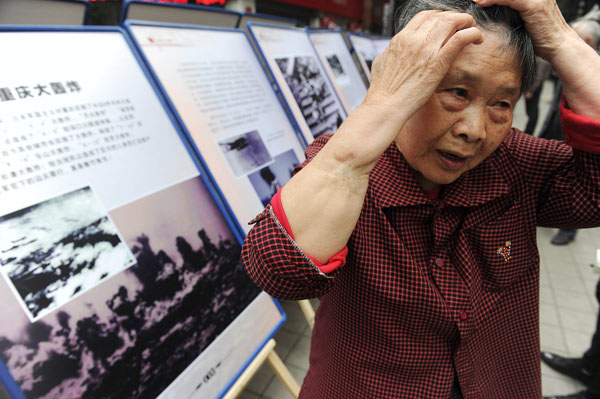Long road to justice for air raid victims
By Deng Rui and He Na (China Daily) Updated: 2015-01-12 08:01
Survivors of Japanese attacks on Chongqing during World War II have finally made a little progress in their attempts to claim compensation and an apology from the government in Tokyo, report Deng Rui in Chongqing and He Na in Beijing.
For most senior citizens, the twilight years are a time to enjoy the privileges that come with age; plenty of rest and television, a gentle stroll around the park, perhaps even a spot of dancing with their peers.
That's not the case for Su Yuankui, though. For the past few years, the 82-year-old has kept himself busy by traveling, studying law, making speeches and giving interviews.
Su visited Japan last year, but not for the culture or sightseeing. The only places he visited were a courtroom and the parliament building. It wasn't the first time he had been to those places, because Su is one of the few remaining survivors of the intense bombardment of Chongqing carried out by Japanese forces during World War II.
He's demanding an apology and compensation from the Japanese government on behalf of the civilians who died in the aerial bombardment that began in Feb 1938 and continued until August 1943.
Documents and photos in the Chongqing Archives show the Imperial Japanese Army Air Service and Navy Air Service dropped more than 11,500 bombs, mainly incendiary devices, on the municipality, China's capital at the time, during the campaign.
"The bombing lasted for more than six years. More than 30,000 people died in the air raids, while a further 6,000 were killed or injured as a result of related activities," said Su, director of the Chongqing Bombing Survivors' Litigation Group, which was formed in 2004 by 188 survivors and the relatives of victims from Chongqing and nearby cities, and is suing the Japanese authorities for reparation.





